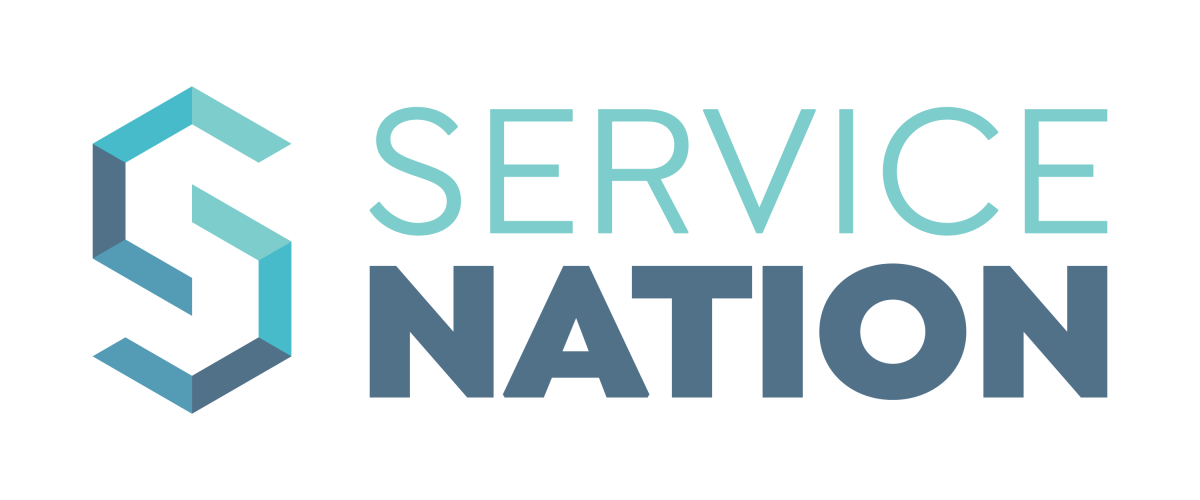Its mission is to provide financial support to those connected with the Construction Trades Industries, who are living with life-altering injuries. The Joseph Groh Foundation is the primary charity of Service Nation, it has wide support in the industry. In addition to Service Nation, Lennox, Goodman, Dike, and Titus, tons of contractors, and many others. And in the interest of full disclosure, I need to say that I’m on the board of directors of the Groh Foundation, although I received no compensation for that. And by the way, none of the people who work for the Groh Foundation are paid. It’s staffed entirely by volunteers. So welcome Joe.
David Heimer: It is a great industry.
Joe Groh: Yeah.
David Heimer: So, your idea was to give back to the industry. And that’s why you started The Joseph Groh Foundation. Give us an idea of who, and how many people you’ve helped.
Joe Groh: Well, since we started our foundation in 2009, we’ve been able to help 33 people obtain items. Ranging from handicapped assisted vans, to home and bathroom models. And last year, we provided a little over $80,000 in grants. And one of these individuals made a particular impression on me. Melissa Underwood, was a college senior, and the 22 year old daughter of an HVAC Contractor in North Carolina. And she sustained a C7 spinal cord injury, which she dove off a pier, at Lake Gaston. Now, that means that she has almost no movement in her fingers. And she was paralyzed from her chest down.
Her dad was looking for assistance from the foundation, because his business had funded the home remodel, and was also struggling through the bankruptcy of one of their large customers. And that bankruptcy wiped out most of their cash, because he had elected to pay off all of his suppliers, and his subcontractors. And Melissa’s family really wanted three things. They wanted a shower chair, and they wanted two pieces of rehab equipment. None of which was covered by insurance. And Melissa’s goals were really threefold. She wanted to rebuild her strength, She wanted to regain as much movement as she could, And she wanted to return to Western Carolina University to finish her degree. And I know, the last time I spoke to her dad, he said that she had regained some movement in her fingers and with an injury like that, that’s a big deal.
David Heimer: Yeah. Wow! That’s a great story. I mean, it strikes so close to home. It feels like that’s something that could almost happen to any of us. You know.
Joe Groh: It is.
David Heimer: Just there, but for the grace of God, right?
Joe Groh: That’s right.
David Heimer: I know that from time to time, Service Roundtable members have actually helped on some of the remodeling projects.
Joe Groh: That’s very true. In fact, probably the most memorable was, situation a few years ago, where we were contacted by a lady who owned an HVAC Contracting Firm in Chicago. And she needed help with the home and bathroom model for her sister, Debbie. Who had suffered a really debilitating stroke in 2000. Debbie’s husband, who was also an HVAC Service Tech, had been taking care of her and their two daughters, but he suffered a fatal heart attack just before Christmas, in 2004. And by the time Debbie’s sister contacted us, the insurance money had run out, and the bank was foreclosing on Debbie’s home. So, her sister was going to move Debbie into her mom’s home, but it was not at all equipped for Debbie’s needs.
And when we were contacted for help, we were low on funds, but we were able to reach out to a local service roundtable member for assistance. And that member volunteered to not only act as the GC on the project, but he also raised an army of volunteers to do the rehab work. While the foundation funded the materials. And I know the final retail value of all that was well over about $30,000. And it wouldn’t have been possible without the expertise in assistance of that service roundtable member.
David Heimer: That was Mark Brennan. If I remember correctly, is that right?
Joe Groh: That’s right. With Yes Plumbing.
David Heimer: Yeah. What a great thing he did for us on his end for that family.
Joe Groh: Absolutely! Was huge.
David Heimer: So, in these times that we have chosen to help people. We look for opportunities that are sort of fixed, one time donations that we can make that will make a significant difference in their lives. Like bathroom remodeling. Give me an example of a few other things that we’ve done.
Joe Groh: Well, we have been able to fund a number of individuals, really, when you think about it, if an injury like Melissa’s happens to you, there’s two primary needs that you have. One is for transportation, and the other is to be able to operate in your own home. And so, we have been able to fund a number of handicap assisted vans for individuals. And that, typically, is probably the top need that we are asked for, because without that, these individuals are pretty much prisoners in their own homes.
David Heimer: Yeah. Typically, what is a remodel of a van cost? Is there some typical range that you would expect?
Joe Groh: There is. In fact, if you were to buy a brand new van that is already modified, those range in the 50 to $60,000 range. Which is out of reach for, you know, a lot of people. And then, if you have an existing van, if it’s able to be modified, not all vans are, just the remodel alone runs in the $20,000 range.
David Heimer: Wow! One time you told me, and I apologize, cause I forgot the number. But if you sustain an injury like yours, or something that’s similar to that, the initial cost is astronomical, isn’t it? Or is it the cost over the life of the injury. But you had a number that you quoted to me at one point in time.
Joe Groh: I do. And it was, it’s a number that comes out of research conducted by the University of Alabama, Birmingham. And, an injury, for example, like Melissa’s, and a C7 level of paralysis is not uncommon. But, an injury like that, according to that study, will cost upwards of about $2 million, over an individual’s life. Of course, depending on their age, at the time of the injury. But it just goes to show you how debilitating those costs can be for people.
David Heimer: Yeah. So, that kind of leads into the next thing I wanted to ask you about. One of the initiatives that you have wanted to start with The Joseph Groh Foundation, is raising awareness in our industry for disability insurance. And why is that?
Joe Groh: Well, that’s something I am very passionate about. I saw a statistic from 2015, from market watch, that said, 62% of Americans have a thousand dollars or less in their savings account. And while that’s hard to believe, if you, even if that’s remotely true, if you couple that with an injury, like the type that Melissa sustained, it simply is going to bankrupt people. And so, that is why I would really want to encourage companies to offer, and for employees to sign up for short and long-term disability insurance. Because in the event of a life-altering disability, it really can make the difference between living some kind of a normal life and living in poverty.
David Heimer: Yeah. I think that’s a great project, and I look forward to working with you on it, with our members. Alright, Joe, thank you so much for taking this time to talk with me today. I’m unfailingly grateful and impressed by what you’ve done for this industry. If someone were listening, decided they’d like to make a donation to the Joseph Groh Foundation, how would they do that?
Joe Groh: Well, it’s pretty easy David. All you need to do is, go to our website at josephgrohfoundation.org or simply Google Joseph Groh Foundation, and it’ll come up, and then just click on the donate tab. And we take all types of credit cards, including Discover and American Express.
David Heimer: Alright. Thanks again. Thanks for what you’re doing for everybody. And thanks for talking with us today. I really appreciate it.
Joe Groh: Thank you David, for letting me speak with you today.





 (877) 807-0869
(877) 807-0869 Member Login
Member Login

